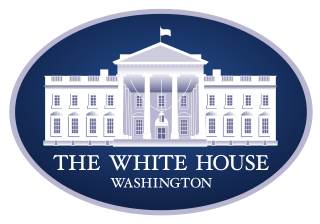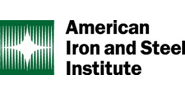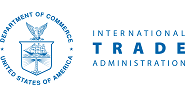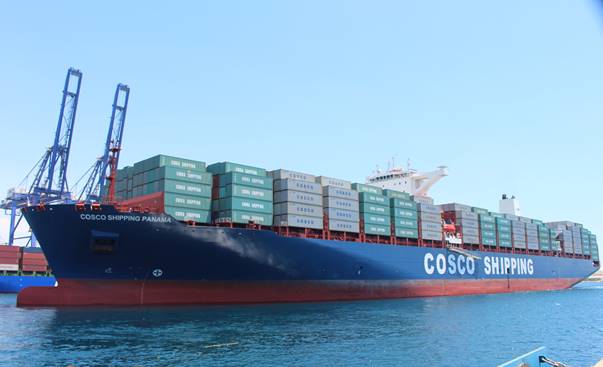
Nippon requests Japan's government restrict steel imports from China
Nippon Steel and other Japanese steelmakers are lobbying for the Japanese government to limit imports of Chinese steel, according to a report in Reuters.

Nippon Steel and other Japanese steelmakers are lobbying for the Japanese government to limit imports of Chinese steel, according to a report in Reuters.

Canada has announced a 25% tariff on Chinese steel and aluminum, along with a 100% tariff on Chinese EVs.

The utility industry has sounded the alarm over potential increases in Section 301 tariffs affecting solar photovoltaic cells, batteries and transformers. The Office of the US Trade Representative (USTR) and the White House have unveiled proposals to increase the current 7.5% tariffs to 25% after the end of this month. An announcement is pending.

The chair of China’s Baowu Steel Group recently predicted a “harsh winter” for the Chinese industry as it faces a structural economic slowdown and a property market crisis. As steel industries elsewhere know all too well, China’s “harsh winters” have an unfortunate tendency to blow back on them.

American Iron and Steel Institute President and CEO Kevin Dempsey discusses the need for updated trade remedy legislation in the US.

In Britain, the handwriting is on the wall. Are we reading the same writing in the US? Based on the pressures of addressing climate change and carbon emissions, British steel companies are facing a stark choice: Push for government subsidies to convert production from blast furnaces to electric furnaces - or go out of business in Britain.

The Trade Remedies Authority (TRA) in the UK has proposed raising the tariff rate quota (TRQ) for imports of hot rolled sheet steel because of blast furnace closures at the Port Talbot works in south Wales. Tata Steel shut down one BF in July with the second to follow in September ahead of a switch […]

The Department of Commerce issued the p antidumping and countervailing duties (AD/CVDs) on corrosion-resistant steel products (CORE) from South Korea.

The European Commission has initiated a trade case investigating allegedly dumped hot-rolled coil imports from Egypt, India, Japan, and Vietnam. The European Steel Association (EUROFER) filed the complaint in June, according to an Aug. 8 notice in the Official Journal of the European Union.

The Department of Commerce is updating the antidumping duties on imports of circular welded carbon-quality steel pipe from the Sultanate of Oman’s Al Jazeera Steel Products Co.

Canada’s steel and aluminum industries joined forces to call on the government for the imposition of tariffs on steel, aluminum, and electric vehicles.

A long-awaited reconsideration of the status of Vietnam as a “non-market economy” was completed by the Commerce Department earlier this month. Hundreds of companies, associations, and politicians weighed in on the question. On Aug. 2, Commerce released its conclusions in a 248-page memorandum, deciding that Vietnam remains a non-market economy (NME) under the US antidumping law. But what are the implications for Vietnam and for other countries with the same status?

The Court of International Trade (CIT) has ruled against BlueScope Steel and its affiliates' challenge of a sunset review of the antidumping duties on hot-rolled (HR) steel flat imports.

The US Commerce Department on Friday released its determination confirming that the Socialist Republic of Vietnam continues to function as a non-market economy (NME). The department’s decision represents a significant victory for domestic manufacturing. It is also critical to leveling the playing field for US industries and will support greater opportunities for growth and fair trade in the United States. The government of Vietnam had requested that Commerce reconsider its NME designation. It argued that Commerce Secretary Gina Raimondo had pledged to support the changing of its status to a market economy.

The US Department of Commerce has announced its determination that Vietnam will keep its classification as a non-market economy (NME) country.

Six steel industry organizations have urged House Speaker Mike Johnson to include the Leveling the Playing Field 2.0 Act in any proposed package of legislation against China’s "unfair" trade practices.

Both iron ore and coking coal prices fell this week because of resistance from buyers. Iron ore prices have continued to fall throughout the past week, following sharp declines in steel prices in China, given no new policy announcement from the ‘Third Plenum’ meeting.

High levels of steel imports, especially from China, in recent months are worrying steel makers in India and Vietnam.

The United Kingdom and other countries are using the “green” label to subsidize bailouts of obsolete, inefficient, and excess capacity that should exit the market. US steelmakers have invested billions of dollars in technologies that curb greenhouse gas output. These investments have been market-based and led by EAF producers such as Nucor, Steel Dynamics, and CMC.

The American Iron and Steel Institute (AISI), American Institute of Steel Construction (AISC), and the University of Massachusetts at Amherst have received a grant to enhance emissions reporting for steel construction projects.

Steel is, mostly for historical reasons, a bellwether of international policy. No longer an industry of primary importance, its advocates still proclaim that it is. And steel still continues to punch above its weight in Washington, DC. Below are a few recent examples.

The Mexican government said on Thursday that it had negotiated a temporary carve out for Brazilian steel in recently updated Section 232 rules. Mexico said that the pact would stretch until 2027, by which point all steel exported to the US would have to me “melted and poured” within North America.

The US and Mexico announced measures on Wednesday to prevent tariff evasion and protect North America’s steel and aluminum industries.

Three steel trade groups and United Steelworkers (USW) union held an event on Capitol Hill urging action on strengthening legislation against unfair trade.
US steel imports registered a steep decline from May, with June licenses falling to the lowest monthly level so far this year.

Steel trade associations applauded the introduction of the “Prove It Act” into the House of Representatives on Monday.

Following April’s eight-month high, May represents the second-lowest export rate of the year, only greater than January’s 771,000 st level.

The volume of steel shipped into Vietnam more than doubled in May to 1.1 million (mt), with China’s share above 70%, according to customs’ statistics. In the first five months, Chinese imports were more than 4.7 million mt, an increase of 91% year on year.

Antidumping and countervailing duties (AD/CVDs), in place for more than twenty years on imports of hot-rolled (HR) steel from six countries, are up for their fourth sunset review.

At the end of every Supreme Court term there are a few big cases. This year, there are more. The last day for releasing opinions comes July 1. On Friday, the Court issued a long-awaited and long-expected decision about interpreting statutes that give powers to administrative agencies, including (among many others) the Commerce Department, the […]